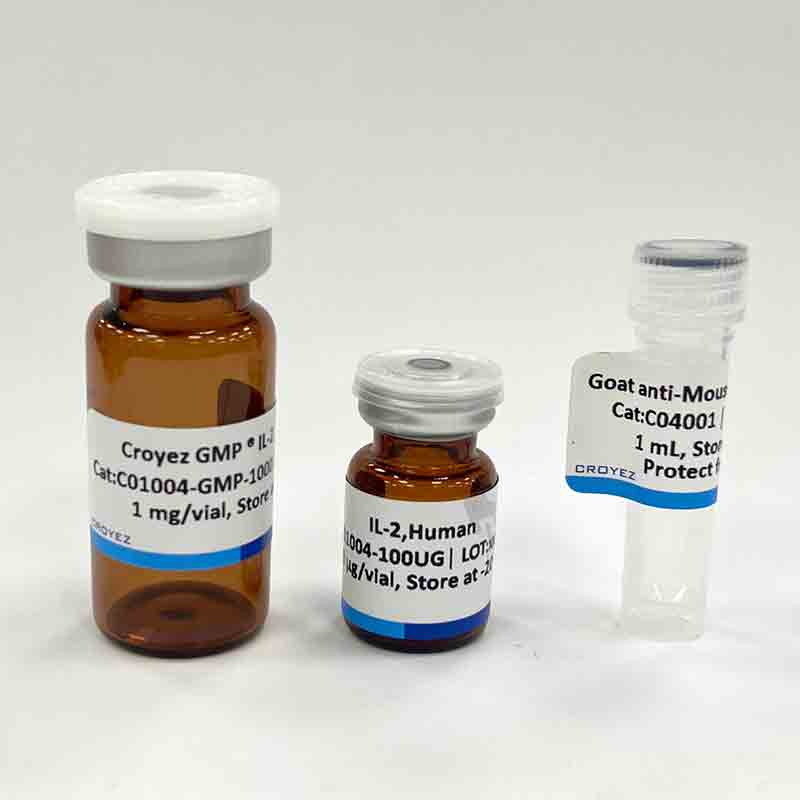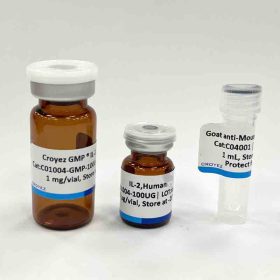CCL3 is belonging to the CC chemokine family. CCL3 participates in activating and recruiting cells, such as lymphocytes, monocytes, and granulocytes during acute inflammation. In addition, CCL3 can enhance IFN-γ secretion from activated T cells and thus induces Th1 response, thereby to regulating leukocyte migration. It is reported that CCL3 is involved in susceptibility of HIV infection and disease progression of AIDS.
Sequence:
APYGADTPTACCFSYSRKIPRQFIVDYFETSSLCSQPGVIFLTKRNRQICADSKETWVQEYITDLELNA with polyhistidine tag at the N-terminus
Source:
Escherichia coli
Endotoxin Test:
<0.1 EU per 1 μg of the protein by the LAL method.
Activity:
Measure by its ability to chemoattract BaF3 cells transfected with human CCR5. The ED50 for this effect is <1.8 ng/mL.
Purity:
>98% as determined by SDS-PAGE. Ni-NTA chromatography
Formulation:
The protein was lyophilized from a solution containing 1X PBS, pH 7.4.
Reconstitution:
It is recommended to reconstitute the lyophilized protein in sterile H2O to a concentration not less than 100 μg/mL and incubate the stock solution for at least 20 min to ensure sufficient re-dissolved.
Storage:
Lyophilized protein should be stored at -20°C. Upon reconstitution, protein aliquots should be stored at -20°C or -80°C.
Note:
Please use within one month after protein reconstitution.





